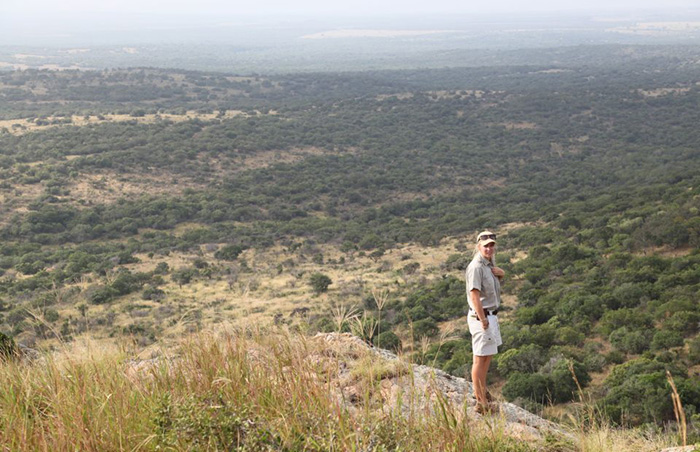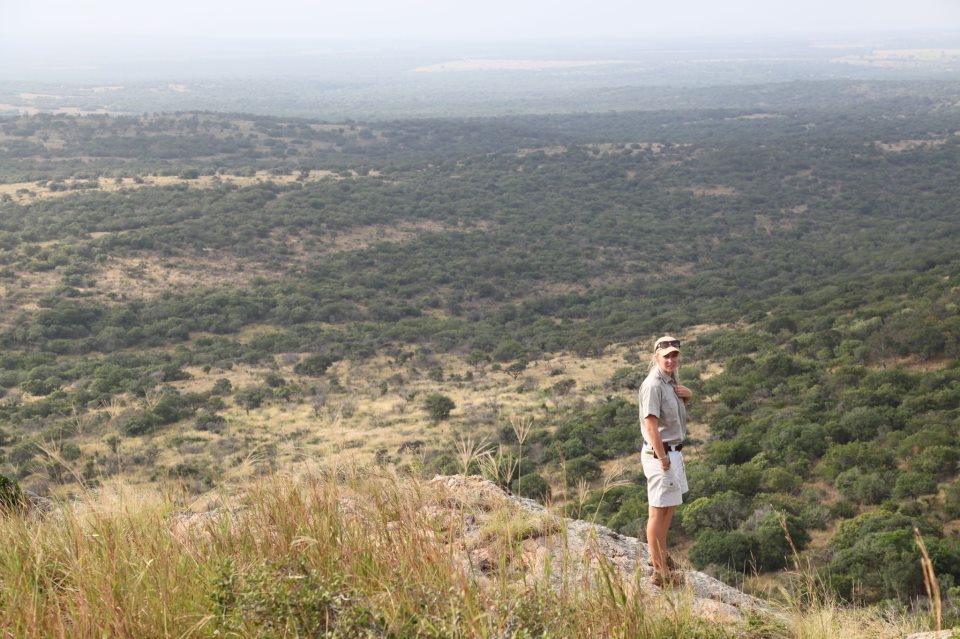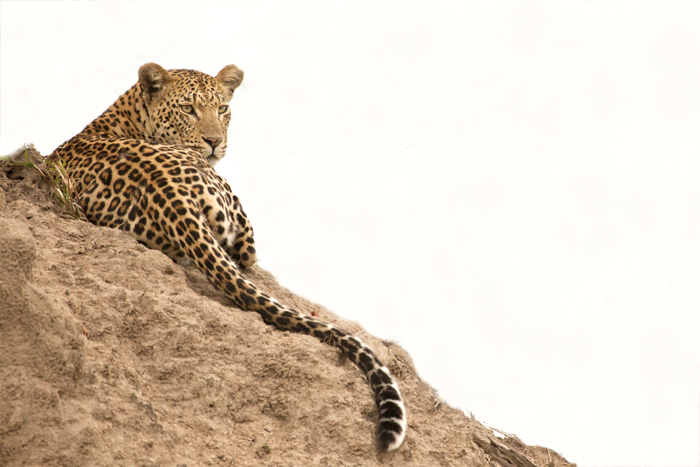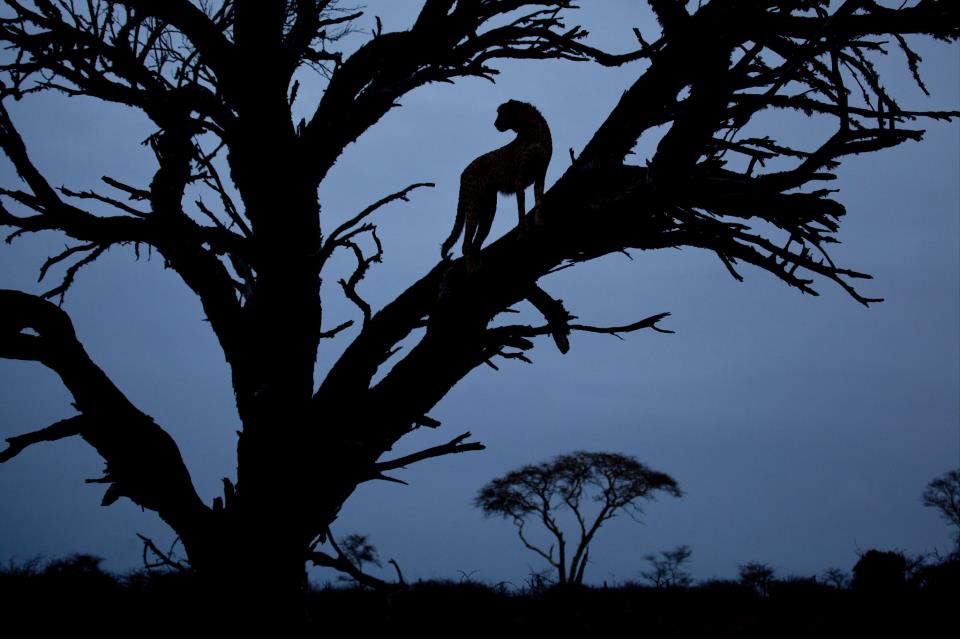“The real world…” It’s a term often used by realists and parents with hopes of their children becoming lawyers. It is the world we inherited with civilisation. One you wouldn’t see being used to describe the realm that game ranger and photographer, Amy Attenborough inhabits. Hers, the status quo perceive as quite the opposite – a fantasy, a “dream”, as Amy terms it in the words she chooses to define herself with on Twitter: “Game ranger, photographer, nature obsessed, adventurer, living my dream everyday on Londolozi Game Reserve, SA.”
But after taking a glimpse into her world, whether through her photography and writing or from the seat beside her on game drives, I wonder if hers is not perhaps the real “real world”. One right at “the wild heart of life”, in Jon Krakauer’s words. In place of rent, traffic and cubicles, it is community, leopards and open-sided Landrovers that define the everyday.
Perhaps the Attenboroughs of the world are the true realists, everything else fantasy. Decide for yourself. Take a look at The World According to Africa’s Attenborough below.
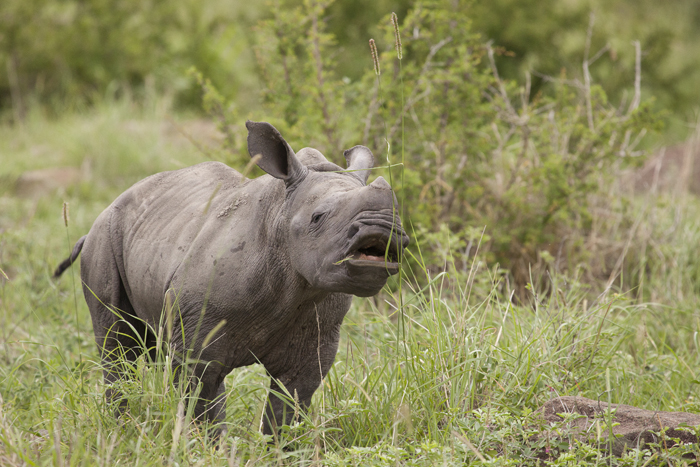
10 Questions with Amy Attenborough
1. Five important things to remember when living in the wilderness?
- That you should expect the unexpected. Recently someone knocked on my door and when I opened, it was an elephant. Out here you really can never tell what will happen next.
- That instant gratification isn’t a reality in the bush. This ranges from a pizza craving, that may have to wait six weeks, to seeing lions killing a buffalo, that may have to wait six years. Patience really is everything.
- That experience is huge. Learn to trust and respect the people that have been exploring the wilderness for years before you, there is so much you can learn from them.
- That you must always remember to close your windows when you leave your room. Marauding monkeys and baboons are constantly on the hunt for their next sugar fix and the presents they leave for you in return are never fun to clean up.
- As Baz Luhrman once said, wear sunscreen. Despite following this advise obsessively, I do fear that that in ten years you may be able to make a bag out of me.

2. Five things travel and photography have taught you about yourself, life and love?
- That you should seize every opportunity presented to you. Start saying yes more often.
- Nothing is really as scary as it seems from a distance. One of my biggest trips was a five month backpacking trip through South America that, for the most part, I did on my own. I didn’t have any set plans, didn’t book anything in advance and didn’t speak a word of Spanish before I got there. This may sound like madness but standing on the sidelines and overthinking it is often far more scary than just taking the plunge and doing it.
- You are always way more competent than you think. When you find yourself in a sticky situation and you don’t have a lot of options or someone to figure it out for you, you’ll be amazed at how resourceful you can be.
- That people around the world are generally amazing and just when you think you’re really in trouble, someone will come out of nowhere with their charged cellphone, or span of oxen to save the day.
- More often than not, less is more. I would always suggest staying longer in one place and not rushing from one destination to the next. You tend to get a much deeper experience and create much better relationships this way.
3. What led you to become a game ranger at Londolozi?
I think I was always the kid that knew they wanted to be in conservation and from early on I was the pain who would stand up and subject the class to an oral on the evils of chromolaena odorata. It is something that has always been my father’s great passion and we have an awesome relationship so I think he ingrained it in me from a very young age. For example, there was a conservancy near our home in Durban that was going to be demolished for a shopping complex. This seriously disturbed my dad and I, so we decided to head out each evening and using our flashlights, find dwarf chameleons in the park that we’d then relocate to our garden. This may have been enough to put some kids off but it definitely had the opposite effect on me.
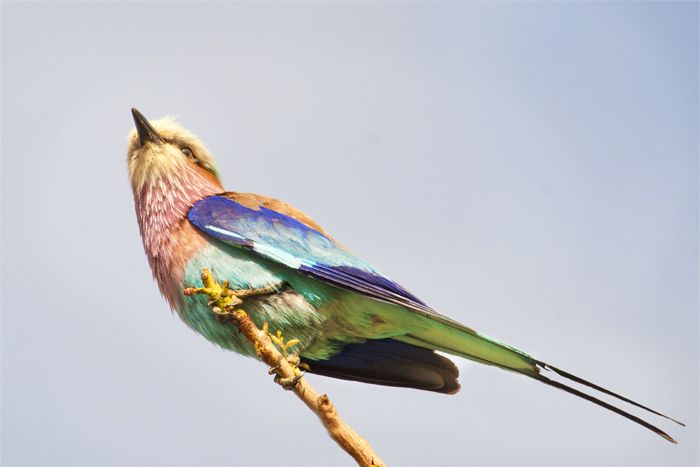
After university I decided that I would guide for a year or so before finding a job in the ‘real world’ but I suppose I just fell in love with it and am still in the bush five and a half years later (having had a few breaks in between). About a year ago, I decided to move to Londolozi for a number of reasons. Some of these include the incredible game viewing, the tracking culture, the fantastic team that work here, the pioneering spirit of the place and the allure of conjoining work in the media team, as I studied journalism and media studies at university, with my with guiding career.
4. Favourite part about living in the bush?
For me the greatest joy is being so connected to nature. You notice the tiny shifts in the seasons, what stage the moon is at and what birds are arriving or leaving, which means you never get complacent about anything. Our lives follow the rhythm of nature, so we move when the animals move and rest when the animals rest, which feels so much more natural than working 9am-5pm.
5. It’s not an adventure if…
It doesn’t scare you.

6. Scariest moment encountered in the wilderness?
Staring down the throat of a crocodile that was propelling itself, straight as an arrow, out of the water to eat me. I had been leaning out of a low boat, pointing out something to my guests and was directly over the water when she came for me. Luckily I somehow managed to jump high enough out of her reach at just the perfect moment that when she snapped her jaws shut it was just half a metre from my face before completely disappearing into the murky water below. To this day I still haven’t forgotten the sound of that terrible power in her jaws as they slammed shut. The funniest part was that I had to calm the boatman down who got such a fright from the back of the boat that we thought he may have a heart attack.

And most memorable?
Being poo’d on by a gorilla. And no, I’m not joking.
All my life, the thing that I had obsessed over the most was seeing a gorilla. When I spent three months working in Gabon, I knew that I may get lucky and see one but the populations there were completely unhabituated at the time and so there was no particular group we could head out to track. At that time we had been hacking through the intensely dense coastal forest in Loango National Park for four days, which literally meant, aiming our compass west and struggling through the tangle, aiming for the sound of the ocean. We were all tired and frustrated and my thoughts had wandered to how glorious the fresh breeze of the ocean was going to feel on my face when my friend and colleague grabbed me and pointed to a family of gorillas playing in a giant tree above us.
As one might expect, the silverback was not as pleased about our presence as we were about his and although his family were relaxed enough to peer at us through the foliage, he put on a magnificent show. He stood on his massive back legs, beat his chest and screamed into the canopy and when this didn’t deter us he decided that tearing foliage off the trees and throwing faeces and urine at us might do the trick. Our guide, believing this was the ultimate insult began to usher us away, totally embarrassed by the gorilla’s anti-social behavior but how could he have known that my dreams had just come true and that my cap, now stained by the world’s largest primate had just become my most prized possession.
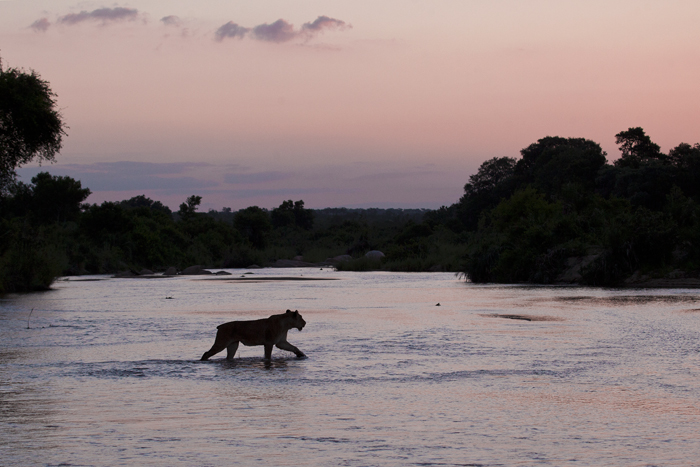
7. How has your relationship with the African wild and her creatures changed over the years?
When I started guiding it used to be a lot more about what amazing things I could see or what photographs I could get but now I have a much deeper relationship to the animals and the wild and realise what profound lessons we can learn just by being around them or immersing ourselves in the wilderness. I have also found that a lot more of my joy now comes from witnessing my guests’ joy, as opposed to my own.
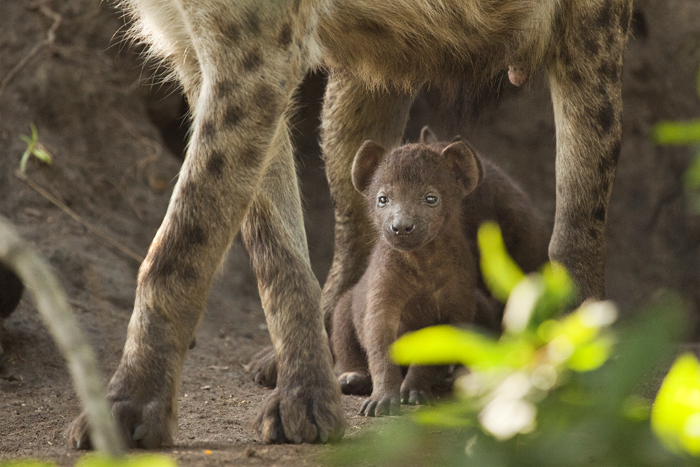
8 There is a quote by Lord Byron that goes, “There is a pleasure in the pathless woods, There is a rapture on the lonely shore, There is society, where none intrudes, By the deep sea, and music in its roar: I love not man the less, but Nature more.”
How do you find alternating between the stillness and isolation of the pathless woods of the Sabi Sand and the hubbub of city life?
Ha! As crazy as it may sound, we all love the bush so much that on a lot of our holidays we skip the city altogether and head off to explore other wilderness areas. Then at other times we really crave seeing friends and family and a break in the city feels healthy. One necessity for me though, is that the city must be close to the ocean.
9. Favourite time of day in the bush and best way to start the day?
Definitely the morning. I love that when you head out in the morning, yesterday’s slate has been wiped clean and a new story of tracks will have been written out in the bush for you to follow. Basically, anything becomes possible.
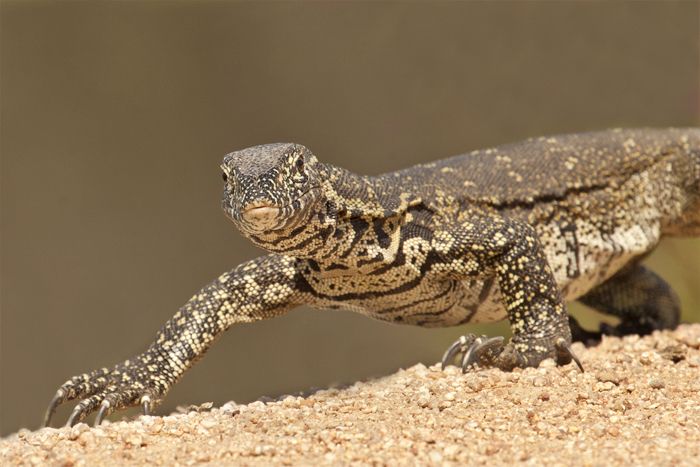
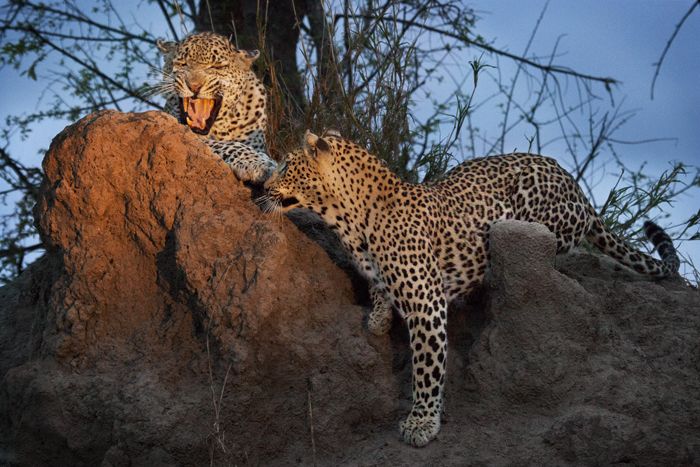
10. The best adventure so far has been…
The three months I spent exploring the Gabonese rainforests. It is not every day that you get the opportunity to just pack a backpack with the bare essentials and plunge yourself deeply into true wilderness for weeks at a time. There were situations when we were days away from civilisation with no way to contact the outside world and if something went wrong, well then that was it. This sense of vulnerability and the big physical challenge is what made for a true adventure.
And the next adventure…
Who knows? If the bush has taught me anything, it’s that the best adventures are the ones that you could never have anticipated. Sometimes its best to scrap the plan, go with the flow and trust in the process.
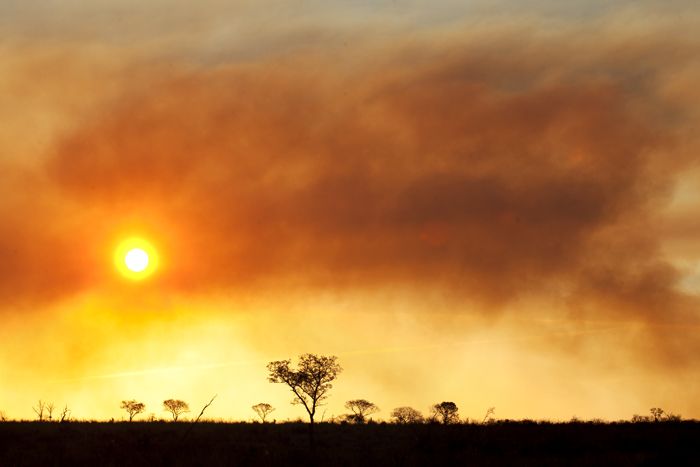
All images by Amy Attenborough

